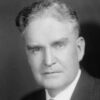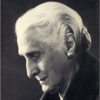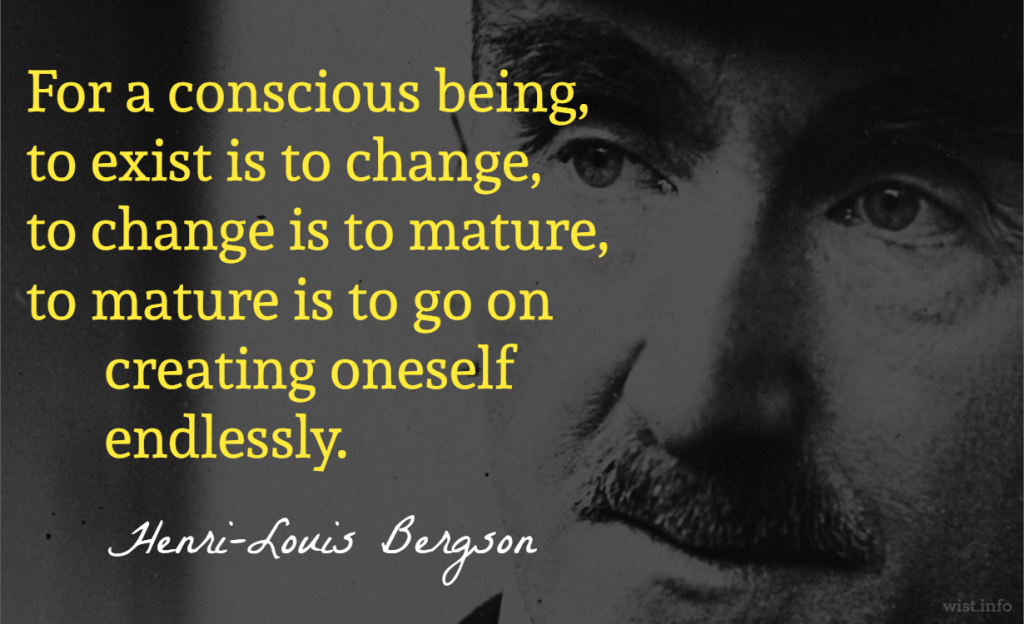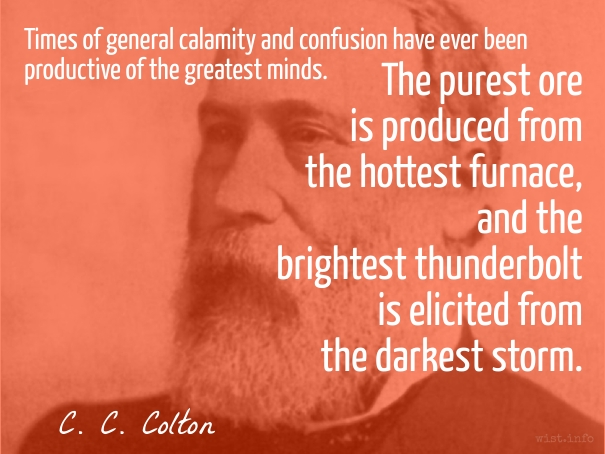Children have an uncanny way of living up — or down — to what is expected of them.
Ann Landers (1918-2002) American advice columnist [pseud. for Eppie Lederer]
“Parenthood: What Do You Owe Your Children?” Family Circle (1977-11)
(Source)
Collected in The Ann Landers Encyclopedia (1978).
Quotations about:
growth
Note not all quotations have been tagged, so Search may find additional quotes on this topic.
Go, sit in the shade of the rose, for every rose
That springs from the earth, again to earth soon goes away!Omar Khayyám (1048-1123) Persian poet, mathematician, philosopher, astronomer [عمر خیام]
Rubáiyát [رباعیات], Bod. # 135, ll. 3-4 [tr. M. K. (1888)]
(Source)
Alternate translations:
And look -- a thousand Blossoms with the Day
Woke -- and a thousand scatter'd into Clay
[tr. FitzGerald, 1st ed. (1859), # 8]
Morning a thousand Roses brings, you say;
Yes, but where leaves the Rose of yesterday?
[tr. FitzGerald, 2nd Ed (1868), # 9]
Each Morn a thousand Roses brings, you say:
Yes, but where leaves the Rose of Yesterday?
[tr. FitzGerald, 3rd ed. (1872), # 9; same in later editions]
Sit in the shade of the rose, for many times this rose from earth has come, and unto earth has gone.
[tr. McCarthy (1879), # 463]
Sit we beneath this rose, which many a time
Has sunk to earth, and sprung from earth again.
[tr. Whinfield (1883), # 414]
Sit in the shade of the rose, for, by the wind, many roses
have been scattered to earth and have become dust.
[tr. Heron-Allen (1898), # 135]
Sit we 'neath this rose shade, for many a rose
Wind strewn in earth has turned to earth again!
[tr. Thompson (1906), # 522]
Sit in her fragrant bower, for oft the wind
Hath strewn and turn'd to dust such flowers as these.
[tr. Talbot (1908), # 135]
Rest in the shadow of the rose, for many of its leaves will the rose
Shed on the earth while we lie under the earth.
[tr. Rosen (1928), # 270]
Stay, Dearest One! beneath the rosy shade,
The roses bloom for Thee but soon would blight.
[tr. Tirtha (1941), # 3.7]
Sit in the rose's shadow, for oftentimes this rose shall spill upon the dust, when we are dust.
[tr. Bowen (1976), # 5a]
The Rosetree spills her petals in the dust,
And nothing of her fragrant harvest saves;
And yet this Rose, a plaything of the breeze,
Will bloom each year when we are in our graves.
[tr. Bowen (1976), # 5b]
Children live in occupied territory. The brave and the foolhardy openly rebel against authority, whether harsh or benign. But most tread warily, outwardly accommodating themselves to alien mores and edicts while living in secret their iconoclastic and subversive lives.
P. D. James (1920-2014) British mystery writer [Phyllis Dorothy James White]
Time To Be in Earnest: A Fragment of Autobiography, “Diary 1997” (1999)
(Source)
The central task of education is to implant a will and facility for learning; it should produce not learned but learning people. The truly human society is a learning society, where grandparents, parents, and children are students together.
Eric Hoffer (1902-1983) American writer, philosopher, longshoreman
Reflections on the Human Condition, ch. 1, # 32 (1973)
(Source)
But we are so blind to our own shortcomings, so wide awake to those of others. Everything that happens to us is always the other person’s fault. Angelina would have gone on loving Edwin forever and ever and ever if only Edwin had not grown so strange and different. Edwin would have adored Angelina through eternity if Angelina had only remained the same as when he first adored her.
It is a cheerless hour for you both when the lamp of love has gone out and the fire of affection is not yet lit, and you have to grope about in the cold, raw dawn of life to kindle it. God grant it catches light before the day is too far spent. Many sit shivering by the dead coals till night come.Jerome K. Jerome (1859-1927) English writer, humorist [Jerome Klapka Jerome]
Idle Thoughts of an Idle Fellow, “On Being in Love” (1886)
(Source)
ANNA: Well, people change, and forget to tell each other. Too bad — causes so many mistakes.
Lillian Hellman (1905-1984) American playwright, screenwriter
Toys in the Attic, Act 3 (1959)
(Source)
Graft your pears, Daphnis, now; your children’s children will enjoy the fruit.
[Insere, Daphni, piros: carpent tua poma nepotes.]
Virgil (70-19 BC) Roman poet [b. Publius Vergilius Maro; also Vergil]
Eclogues [Eclogae, Bucolics, Pastorals], No. 9 “Lycidas and Moeris,” l. 50 (9.50) (42-38 BC) [tr. Rieu (1949)]
(Source)
(Source (Latin)). Alternate translations:
Daphnis set pears, thy race shall fruit injoy.
[tr. Ogilby (1649)]
Under this influence, graft the tender Shoot;
Thy Childrens Children shall enjoy the Fruit.
[tr. Dryden (1709), ll. 68-69]
Plant, Daphnis, for the rising race thy pears.
[tr. Wrangham (1830), l. 59]
Daphnis, plant thy pear-trees. Posterity shall pluck the fruit of thy plantations.
[tr. Davidson (1854)]
Sow, Daphnis, pears, whereof thy sons shall eat.
[tr. Calverley (c. 1871)]
Engraft your peartrees, Daphnis; your children's children shall enjoy their fruits.
[tr. Wilkins (1873)]
Graft, Daphnis, graft thy trees, nor fear
Thy sons shall all the produce share.
[tr. King (1882), ll. 897-898]
You may graft new rows
Of pears; your progeny will shake the boughs.
[tr. Palmer (1883)]
Now, the pears;
so shall your children's children pluck their fruit.
[tr. Greenough (1895)]
Daphnis, plant your pear-trees. Posterity will pluck the fruit due to your care.
[tr. Bryce (1897)]
Engraft thy pear-trees, Daphnis; thy children's children shall pluck their fruit.
[tr. Mackail (1899)]
Now, Daphnis, graft
Thy pear trees, that thy children's children may
Eat of their fruit.
[tr. Mackail/Cardew (1908)]
Go, Daphnis, graft thy pears!
Sons of thy sons shall gather them in joy.
[tr. Williams (1915)]
Graft you pears, Daphnis; your children’s children shall gather the fruits you have sown.
[tr. Fairclough (Loeb) (1916)]
Daphnis, engraft thy pears, for thee, thy sons,
And their seed after them.
[tr. Royds (1922)]
Daphnis, graft you pears; your children's children
Shall pluck them in peace.
[tr. Johnson (1960)]
Daphnis, graft your pears now: your sons’ sons will enjoy them.
[tr. Day Lewis (1963)]
Daphnis, plant your pear trees ... years from now
The children of your children will gather the pears ...
[tr. Ferry (1999)]
Graft
your pears, Daphnis: your grandchildren will gather their fruit.
[tr. Kline (2001)]
We are cups, constantly and quietly being filled.
The trick is knowing how to tip ourselves over and let the beautiful stuff out.Ray Bradbury (1920-2012) American writer, futurist, fabulist
“The Secret Mind,” The Writer (1965-11)
(Source)
Reprinted in Bradbury, Zen in the Art of Writing (1990).
This process of the good life is not, I am convinced, a life for the faint-hearted. It involves the stretching and growing of becoming more and more of one’s potentialities. It involves the courage to be. It means launching oneself fully into the stream of life.
I don’t think there is anything I have done that I wish I hadn’t done. Because I learn from everything I do. I’m in school every day. My diploma will be my tombstone.
Eartha Kitt (1927-2008) American singer and actress
In Lon Tuck, “It’s Been a Long Time But … Eartha’s Back!” Washington Post (1978-01-19)
(Source)
When a citation is given to this quotation, it's usually "Playbill 1978." It does indeed show up in an (unknown month) of Playbill Magazine in 1978, also in association with her starring role in the stage show Timbuktu, which opened on Broadway March 1st of that year, but this article appears to be the source. (see comments for the helpful tip).
The day you stop learning is the day you begin decaying, and then you are no longer a human being.
Isaac Asimov (1920-1992) Russian-American author, polymath, biochemist
Commencement speech, Connecticut College (1975-05-25)
(Source)
Quoted in Peter Smith, ed., Onward! 25 Years of Advice, Exhortation, and Inspiration from America's Best Commencement Speeches (2000).
But, sooth, ’tis Spring
Lends leafing orchard and the woodside green
Her help and succor; in the Spring the earth
Swells warm and bids the seeds of life begin.
Then will th’ almighty Sire from heights of air
Descend in life-engendering showers to fill
Earth’s bosom, his glad spouse, and mightily
With her vast body mingling, brings to power
All unborn things she bears. With song-birds then
The tangled brakes are loud, and lowing herds —
Their season due — live o’er their mating days.
The whole earth’s womb is travailing; the land
Spreads bare its bosom to the warm west wind.
And gentle dews feed all. The bladed grass
Climbs boldly upward to the sun’s young beams;
The tendrilled vine shrinks not from gathering storm
Nor rout of wind-swept northern rains, but thrusts
Her soft buds forth and every leaf unfolds.[Ver adeo frondi nemorum, ver utile silvis;
vere tument terrae et genitalia semina poscunt.
Tum pater omnipotens fecundis imbribus Aether
coniugis in gremium laetae descendit et omnis
magnus alit magno commixtus corpore fetus.
Avia tum resonant avibus virgulta canoris
et Venerem certis repetunt armenta diebus;
parturit almus ager Zephyrique tepentibus auris
laxant arva sinus; superat tener omnibus humor;
inque novos soles audent se germina tuto
credere, nec metuit surgentis pampinus austros
aut actum caelo magnis aquilonibus imbrem,
sed trudit gemmas et frondes explicat omnis.]Virgil (70-19 BC) Roman poet [b. Publius Vergilius Maro; also Vergil]
Georgics [Georgica], Book 2, l. 323ff (2.323) (29 BC) [tr. Williams (1915)]
(Source)
(Source (Latin)). Alternate translations:
Spring cloaths the woods with leaves, and groves attires,
Earth swels with spring, and genitall seed requires.
In fruitfull showrs th' Almighty from above
Descends ith' lap, of his delighted love:
And great, he with the mighty body joyn'd,
Both propagates, and fosters every kinde.
Harmonious birds then sing in every grove,
And cattell taste the sweet delights of love.
Earth blest, now teems: soft winds dissolve the Meads,
With cheering warmth through all sweet moysture spreads.
To the new sun, the tender herbage dare
Open their leaves, nor vines rough Auster fear:
Nor thundering Boreas ushering dreadfull showrs;
But all things bud with blossome, leaf and flowers.
[tr. Ogilby (1649)]
The Spring adorns the Woods, renews the Leaves;
The Womb of Earth the genial Seed receives.
For then Almighty Jove descends, and pours
Into his buxom Bride his fruitful Show'rs.
And mixing his large Limbs with hers, he feeds
Her Births with kindly Juice, and fosters teeming Seeds.
Then joyous Birds frequent the lonely Grove,
And Beasts, by Nature stung, renew their Love.
Then Fields the Blades of bury'd Corn disclose,
And while the balmy Western Spirit blows,
Earth to the Breath her Bosom dares expose.
With kindly Moisture then the Plants abound,
The Grass securely springs above the Ground;
The tender Twig shoots upward to the Skies,
And on the Faith of the new Sun relies.
The swerving Vines on the tall Elms prevail,
Unhurt by Southern Show'rs or Northern Hail.
They spread their Gems the genial Warmth to share:
And boldly trust their Buds in open Air.
[tr. Dryden (1709), l. 438ff]
In spring the groves, in spring the woods delight,
In spring swoll'n lands the genial seeds invite.
Then on his glad Wife's breast in fertile show'rs
Himself th' all-potent Father Ether pours;
Mixt with the Mother in a vast embrace
The mighty Sire refreshes all her race.
The lone brakes echo with the plumy quire,
And on set days herds burn with fierce desire:
Earth bounteous teems; the fields their bosom bare
To the kind warmth of Zephyr's balmy air:
A subtile moisture wide prevails: the land
Dares to new suns her verdant vest expand.
Nor then the Vine dreads Auster's threat'ning pow'r,
Or, by rough Boreas driv'n, the weighty show'r;
But all her gems, and all her leaves displays.
[tr. Nevile (1767), l. 361ff]
Spring comes, new bud the field, the flower, the grove,
Earth swells, and claims the genial seeds of love:
Aether, great lord of life, his wings extends,
And on the bosom of his bride descends,
With show'rs prolific feeds the vast embrace
That fills all nature, and renews her race.
Birds on their branches hymeneals sing,
The pastur'd meads with bridal echoes ring;
Bath'd in soft dew, and fann'd by western winds,
Each field its bosom to the gale unbinds:
The blade dares boldly rise new suns beneath,
The tender vine puts forth her flexile wreath,
And, freed from southern blast and northern shower,
Spreads without fear, each blossom, leaf, and flower.
[tr. Sotheby (1800)]
The spring, too, is beneficial to the foliage of the groves, the spring is beneficial to the woods: in spring the lands swell, and demand the genial seeds. Then almighty father Aether descends in fertilizing showers into the bosom of his joyous spouse, and great himself, mingling with her great body, nourishes all her offspring. Then the retired brakes resound with tuneful birds,; and the herds renew their loves on the stated days. the bounteous earth is teeming to the birth, and the and the fields open their bosoms to the warm breezes of the Zephyr: in all a gentle moisture abounds; and the herbs dare safely trust themselves to the infant suns; nor do the vine's tender shoots fear the rising south winds, or the shower precipitated from the sky by the violent north winds; but put forth their buds, and unfold all their leaves.
[tr. Davidson (1854)]
So Spring befriends the forest and the mead,
In Spring the plump earth craves the vital seed:
Then Air, almighty father, raining life,
Sinks on the bosom of his laughing wife;
All growth he feeds, commingling with the same,
The mighty Spirit in the mighty frame.
Then birds make music to the pathless groves,
And herds and flocks prove faithful to their loves:
The kind earth gives her increase, and the West
With fluttering warmth unzones the meadow's breast.
Soft dew is shed on all, and flowers are won
To trust their beauty to the stranger sun.
No more the vine-growth dreads the southern blast,
Or showers from heaven by mighty north winds cast;
But pushes forth the gems herself conceives,
And opes the crinkled modesty of the leaves.
[tr. Blackmore (1871), l. 383ff]
Spring ministers to the foliage of the groves, spring to the woods: in springtime earth swells with fruitfulness, and asks the seed that giveth life. 'Tis then that the almighty father air descends in fertilising showers into the leap of his joyous spouse, and in his might, mingling with her mighty frame, nourishes all the embryos within. Then pathless brakes with tuneful birds resound, and herds on certain days renews their loves; bounteous earth teems with life, and the fields open their bosoms to the Zephyr's balmy breezes; a delicate moisture abounds everywhere; the herbage safely dares to trust itself to meet the newborn suns; nor does the vine-leaf dread the rising of the southern gales, or the shower driven from the sky by the north's impetuous blast, but puts forth its buds and all its leaves unfolds.
[tr. Wilkins (1873)]
Spring it is
Blesses the fruit-plantation, Spring the groves;
In Spring earth swells and claims the fruitful seed.
Then Aether, sire omnipotent, leaps down
With quickening showers to his glad wife's embrace,
And, might with might commingling, rears to life
All germs that teem within her; then resound
With songs of birds the greenwood-wildernesses,
And in due time the herds their loves renew;
Then the boon earth yields increase, and the fields
Unlock their bosoms to the warm west winds;
Soft moisture spreads o'er all things, and the blades
Face the new suns, and safely trust them now;
The vine-shoot, fearless of the rising south,
Or mighty north winds driving rain from heaven,
Bursts into bud, and every leaf unfolds.
[tr. Rhoades (1881)]
Green leaves unfold, the woods in spring rejoice;
Swells the warm glebe, and with impatient voice
The seed demands; the god who fills all space,
All earth compresses in one vast embrace;
All earth, now conscious of almighty power,
Waits the glad advent of the genial shower.
The tuneful birds in lonely thickets sing
Their amorous descant, and proclaim the spring;
The lowing herd the soft infection feels;
Earth teems prolific as the warm breath steals
Of zephyr o’er her; dews refreshing rise;
The tender grasses dare the sunny skies.
Secure the vine puts forth each polished gem,
Hope of the vintage, from the bursting stem.
[tr. King (1882), l. 334ff]
Spring especially is beneficial to the foliage of the groves; spring is beneficial to the woods: in spring earth swells and demands generative seeds. Then almighty father ther descends in fertilizing showers into the lap of his happy spouse, and mighty himself, mingling with her mighty body, nourishes all her offspring. Then the retired brakes resound with the songs of birds, and the herds renew their loves at their appointed times. Then bounteous earth is teeming to the birth, and the fields open their bosoms to the balmy breezes of the Zephyr: in all a kindly moisture abounds; and the herbs safely venture to trust themselves to the early suns; nor do the vine’s tender shoots fear the rising south winds, or the shower precipitated from the sky by the violent north winds; but put forth their buds, and unfold all their leaves.
[tr. Bryce (1897)]
Spring aids woodland leaf and forest tree; in spring earth yearns and cries for the life-giving seed. Then the lord omnipotent of Sky descends in fruitful showers into the lap of his laughing consort, and mingling with her mighty body nourishes all her fruits in might. Then pathless copses ring with warbling birds, and at the appointed days the herds renew their loves; the bountiful land breaks into birth, and the fields unbosom to warm breezes of the West: everywhere delicate moisture overflows, and the grasses dare in safety to trust themselves to spring suns, nor does the vine-tendril fear gathering gales or sleet driven down the sky by the blustering North, but thrusts forth her buds and uncurls all her leaves.
[tr. Mackail (1899)]
Spring it is
Blesses the fruit-plantation, Spring the groves;
In Spring earth swells and claims the fruitful seed.
Then Aether, sire omnipotent, leaps down
With quickening showers to his glad wife's embrace,
And, might with might commingling, rears to life
All germs that teem within her; then resound
With songs of birds the greenwood-wildernesses,
And in due time the herds their loves renew;
Then the boon earth yields increase, and the fields
Unlock their bosoms to the warm west winds;
Soft moisture spreads o'er all things, and the blades
Face the new suns, and safely trust them now;
The vine-shoot, fearless of the rising south,
Or mighty north winds driving rain from heaven,
Bursts into bud, and every leaf unfolds.
[tr. Greenough (1900), l. 323ff]
With blessing to woodland-frondage and forest Spring returns.
In spring earth heaves with desire, for the seed life-laden she yearns:
Then Heaven, the Father almighty, in quickening showers descends
Into the lap of his gladsome bride: in his might he blends
with her mighty frame, and to all her offspring life doth he bring;
Then pathless copses with music of birds re-echoing ring;
And the beasts are rekindled with love in the days ordained of the Spring.
The land with her boons is in travail, to west-winds warmly blowing
Fields open their arms; all things are with delicate sap overflowing.
In the suns new-born all seedlings safely and fearlessly trust.
No vine-shoot dreadeth the south-wind's suddenly rising gust,
Or the rain-storm that over the sky the mighty north-wind hurls;
But each pushes gem-buds forth, and her green leaf-banners unfurls.
[tr. Way (1912)]
Spring it is that clothes the glades and forests with leaves, in spring the soil swells and carves the vital seed. Then does Heaven, sovereign father, descend in fruitful showers into the womb of his joyful consort and, mightily mingling with her mighty frame, gives life to every embryo within. Then secluded thickets echo with melodious birdsong and at the trysting hour the herds renew their loves; the bounteous earth prepares to give birth, and the meadows ungirdle to the Zephyr’s balmy breeze; the tender moisture avails for all. The grass safely dares to face the nascent suns, nor does the vine tendril fear the South Wind’s rising or showers launched from the skies by the blustering North, but puts forth buds and unfurls its every leaf.
[tr. Fairclough (Loeb) (1916)]
Oh, spring is good for leaves in the spinney, good to forests,
In spring the swelling earth aches for the seed of new life.
Then the omnipotent Father of air in fruitful showers
Comes down to his happy consort
And greatly breeds upon her great body manifold fruit.
Then are the trackless copses alive with the trilling of birds,
And the beasts look for love, their hour come round again:
Lovely the earth in labour, under a tremulous west wind
The fields unbosom, a mild moisture is everywhere.
Confident grows the grass, for the young sun will not harm it;
The shoots of the vine are not scared of a southerly gale arising
Or the sleety rain that slants from heaven beneath a north wind, --
No, bravely now they bud and all their leaves display.
[tr. Day-Lewis (1940)]
Spring fills the groves with leaves,
Is good to forests; earth expands in the Spring,
And sends out calls for life-inspiring seed.
Then Heaven, the father almighty, comes down to earth
In pregnant rains to embrace his joyous bride,
Infusing her massive frame with vital strength.
Then pathless thickets ring with songs of birds,
And herds comply with Venus’ set demands;
The kindly field gives birth, and furrowed lands
Release their folds to the West Wind’s ruffling breeze;
Soft moisture floods all things, the green blades dare
To face the newborn suns, the budding vines
Have no fear of the South Wind’s springing up,
Nor of rain the North Wind lashes through the sky.
But put forth buds, unfolding all their leaves.
[tr. Bovie (1956)]
... Father omnipotent, the sky, with fruitful showers comes down into the womb of his joyful wife, in his greatness joins with her great body and nourishes all young. ... the tepid breezes of the west wind ... gentle moisture ... grasses date entrust themselves safely to mild suns ... the vine shoot does not fear either rising south winds or rain driven from the sky by great north winds, but it thrusts out its buds and unfolds its leaves, all of them.
[tr. Miles 1, 2 (1980)]
Spring is the friend of woods, spring is the friend
Of forest leaves, in spring the country swells
Clamouring for the fertilizing seeds.
Then the almighty father Heaven descends
Into the lap of his rejoicing bride
With fecund showers, and with her mighty body
Mingling in might begets all manner of fruits.
Then are wild thickets loud with singing birds
And in their season herds renew their loves.
The nurturing earth is pregnant; warmed by breezes
Of Zephyrus the fields unloose their bosoms
Mild moisture is all-pervading, and unharmed
The grasses brave the unaccustomed suns;
Nor do the vine-shoots fear a southern gale.
Or northern rainstorms driving down the sky.
But put forth buds and all their leaves unfold.
[tr. Wilkinson (1982)]
Spring benefits the leaves of the groves and woods,
in Spring soil swells and demands life-bringing seed.
Then Heaven, the omnipotent father, descends as fertile rain,
into the lap of his joyful consort, and joining his power
to her vast body nourishes all growth.
Then the wild thickets echo to the songs of birds,
and in the settled days the cattle renew their loves:
the kindly earth gives birth, and the fields open their hearts,
in the warm West winds: gentle moisture flows everywhere,
and the grasses safely dare to trust to the new sun.
the vine-shoots don’t fear a rising Southerly,
or rain driven through the sky, by great Northerly gales,
but put out their buds, and unfold all their leaves.
[tr. Kline (2001)]
It is spring that decks the groves in leaves, spring that serves the woods;
in spring, Earth swells moistly and begs for bursting seed.
Then Sky, all-powerful father, descends to the womb
of his fertile spouse with inseminating rain and, uniting
his strength with her strong body, nourishes all they conceive.
The remotest thickets resound then with birdsong, and the herds
seek once again to mate in this appointed season.
The fair land longs to give birth; fields plowed but not yet sown open
themselves to the West Wind's ardor. Sweet moisture abounds for all.
Plants dare in safety to trust the sun's new light and warmth,
nor do the tendrils of the vines fear the South Wind's rising
or showers driven down from heaven by the forceful North Wind.
No, they spout plump buds, and unfurl all their leaves.
[tr. Lembke (2004)]
O spring the leafy groves, spring the forest speeds,
in spring the acres swell and beg for pregnant seed.
Then Heaven, almighty Father, in vital showers comes down
into the lap of his ecstatic wife, where his potence
with her potent loins commingling engenders all florescence.
Then trackless thickets trill with birdsong
and in their hour appointed the herds renew the rut.
Bountiful broods the earth and under warm westerlies
the fields unloose their bosom -- soft moisture soaks into everything
and the cotyledons dare resign themselves to the new suns,
the shoots fear not the south wind's surge
nor showers drive through the sky by the gusting North,
but push out buds and all their leaves unfold.
[tr. Johnson (2009)]
It's spring that adorns the woods and groves with leaves;
In spring, the soil, desiring seed, is tumid,
And then the omnipotent father god descends
In showers from the sky and enters into
The joyful bridal body of the earth,
His greatness in their union
Bringing to life the life waiting to live.
Birdsong is heard in every secluded thicket,
And all the beasts of the field have become aware
That love's appointed days have come again.
The generous earth is ready to give birth
And the meadows ungirdle for Zephyr's warming breezes;
The tender dew is there on everything;
The new grass dares entrust itself to the new
Suns of the new days and the little tendrils
Of the young vines have no fear of a South Wind coming
Nor of a North Wind from a stormy sky;
The vine brings forth its buds; its leaves unfold.
[tr. Ferry (2015)]
The primary benefit of practicing any art, whether well or badly, is that it enables one’s soul to grow.
Kurt Vonnegut, Jr. (1922-2007) American novelist, journalist
“Despite Tough Guys, Life Is Not the Only School for Real Novelists,” New York Times (1999-05-24)
(Source)
Part of the Times "Writers on Writing" series.
In Man Without a Country, ch. 3 "Here Is a Lesson in Creative Writing" (2005), Vonnegut expanded on this:
Practicing an art, no matter how well or badly, is a way to make your soul grow, for heaven's sake. Sing in the shower. Dance to the radio. Tell stories. Write a poem to a friend, even a lousy poem. Do it as well as you possibly can. You will get an enormous reward. You will have created something.
There’s a reason narcissists don’t learn from mistakes and that’s because they never get past the first step, which is admitting that they made one.
Robert Hogan (b. 1937) American psychologist
In Jeffrey Kluger, The Narcissist Next Door, ch. 6 (2014)
(Source)
Into a dancer you have grown,
From a seed somebody else has thrown.
Go on ahead and throw some seeds of your own,
And somewhere between the time you arrive and the time you go,
May lie a reason you were alive but you’ll never know.Jackson Browne (b. 1948) American musician, songwriter, political activist
“For a Dancer” (1974)
(Source)
Democracy is based on a profound insight into human nature, the realization that all men are sinful, all are imperfect, all are prejudiced, and none knows the whole truth. That is why we need liberty and why we have an obligation to hear all men. Liberty gives us a chance to learn from other people, to become aware of our own limitations, and to correct our bias. Even when we disagree with other people we like to think that they speak from good motives, and while we realize that all men are limited, we do not let ourselves imagine that any man is bad. Democracy is a political system for people who are not sure that they are right.
E. E. Schattschneider (1892-1971) American political scientist [Elmer Eric Schattschneider]
Two Hundred Million Americans in Search of a Government (1969)
(Source)
When you are through changing, you are through.
Bruce Barton (1886-1967) American author, advertising executive, politician
Article Title, The American Magazine (1929?)
(Source)
Barton was a regular contributor to The American Magazine. Both the cited source (from 1929) and this suggest this was an article he contributed no later than 1929.
The saying has been misattributed to a number of more recent consultants, motivational speakers, etc.
Living things tend to change unrecognizably as they grow. Who would deduce the dragonfly from the larva, the iris from the bud, the lawyer from the infant? Flora or fauna, we are all shape-shifters and magic reinventors. Life is really a plural noun, a caravan of selves.
Diane Ackerman (b. 1948) American poet, author, naturalist
Cultivating Delight; A Natural History of My Garden, ch. 6 (2001)
(Source)
Just as we develop our physical muscles through overcoming opposition, such as lifting weights, we develop our character muscles by overcoming challenges and adversity.
Stephen R. Covey (1932-2012) American consultant, author
First Things First, ch. 15 (1994) [with Merrill & Merrill]
(Source)
The purpose of life is to be defeated by greater and greater things.
Rainer Maria Rilke (1875-1963) German poet
“The Beholder [Der Schauende]”, The Book of Images [Buch der Bilder], Second Book, Part 2 (1902) (paraphrase)
This looks to be a paraphrase from a couplet in the poem (also known as "The Man Watching"):
Sein Wachstum ist: der Teifbesiegte
von immer Größerem zu sein.
[Source]
Which translates variously as:
His growth is: to be the deeply defeated
by ever greater things.
[tr. Snow (1991)]
This is how he grows: by being defeated, decisively,
by constantly greater beings.
[tr. Bly]
His growth is this: to be defeated
by ever greater forces.
[tr. Barrows and Macy]
I am certainly not an advocate for frequent & untried changes in laws and constitutions. I think moderate imperfections had better be borne with; because when once known, we accommodate ourselves to them, and find practical means of correcting their ill effects. but I know also that laws and institutions must go hand in hand with the progress of the human mind. as that becomes more developed, more enlightened, as new discoveries are made, new truths disclosed, and manners and opinions change with the change of circumstances, institutions must advance also, and keep pace with the times. we might as well require a man to wear still the coat which fitted him when a boy, as civilised society to remain ever under the regimen of their barbarous ancestors.
Thomas Jefferson (1743-1826) American political philosopher, polymath, statesman, US President (1801-09)
Letter to “Henry Tompkinson” (Samuel Kercheval) (12 Jul 1816)
(Source)
Inscribed (elided) on southeast side of the Jefferson Memorial:
I am not an advocate for frequent changes in laws and constitutions, but laws and institutions must go hand in hand with the progress of the human mind. As that becomes more developed, more enlightened, as new discoveries are made, new truths discovered and manners and opinions change, with the change of circumstances, institutions must advance also to keep pace with the times. We might as well require a man to wear still the coat which fitted him when a boy as a civilized society to remain ever under the regimen of their barbarous ancestors.
Without darkness, nothing comes to birth,
As without light, nothing flowers.May Sarton (1912-1995) Belgian-American poet, novelist, memoirist [pen name of Eleanore Marie Sarton]
“The Invocation to Kali,” Part 5, Poetry (Feb 1971)
(Source)
What you have become is the price you paid to get what you used to want.
Mignon McLaughlin (1913-1983) American journalist and author
The Neurotic’s Notebook, ch. 5 (1963)
(Source)
These are times in which a Genious would wish to live. It is not in the still calm of life, or the repose of a pacific station, that great characters are formed. Would Cicero have shone so distinguished an orater, if he had not been roused, kindled and enflamed by the Tyranny of Catiline, Millo, Verres and Mark Anthony. The Habits of a vigorous mind are formed in contending with difficulties. All History will convince you of this, and that wisdom and penetration are the fruits of experience, not the Lessons of retirement and leisure. Great necessities call out great virtues. When a mind is raised, and animated by scenes that engage the Heart, then those qualities which would otherways lay dormant, wake into Life, and form the Character of the Hero and the Statesman.
Abigail Adams (1744-1818) American correspondent, First Lady (1797-1801)
Letter to John Quincy Adams (19 Jan 1780)
(Source)
Written when John Quincy was twelve, in Paris with his father for the peace negotiations with Britain.
Yet, when all is said and done, birthdays are mere records of time, not registers of distance. They are chronometers, not speedometers. They tell us how long we have been upon the road, not how far we have travelled.
Learning and living. But they are really the same thing, aren’t they? There is no experience from which you can’t learn something. … And the purpose of life, after all, is to live it, to taste experience to the utmost, to reach out eagerly and without fear for newer and richer experience.
The religion of endless growth — like any religion based on blind faith rather than reason — is a kind of mania, a form of lunacy, indeed a disease. And the one disease to which the growth mania bears an exact analogical resemblance is cancer. Growth for the sake of growth is the ideology of the cancer cell. Cancer has no purpose but growth; but it does have another result — the death of the host.
Edward Abbey (1927-1989) American anarchist, writer, environmentalist
“Arizona: How Big is Enough?”One Life at a Time, Please (1988)
(Source)
Life does not accommodate you, it shatters you. It is meant to, and it couldn’t do it better. Every seed destroys its container or else there would be no fruition.
Florida Scott-Maxwell (1883-1979) American-British playwright, author, psychologist
The Measure of My Days (1968)
(Source)
More businesses die of indigestion than starvation.
David Packard (1912-1996) American electrical engineer, businessman, government official
(Misattributed)
The quote is frequently attributed to Packard, but actually he (anonymously) quoted in his book, The HP Way: How Bill Hewlett and I Built Our Company (1995): "Wells Fargo sent a retired engineer to visit us. I spent a full afternoon with him and I have remembered ever since some advice he gave me. He said that more businesses die of indigestion than starvation. I have observed the truth of that advice many times since then."
Variants of the saying include "entrepreneurs," "companies," and "start-ups" in place of "businesses." See here for more information.
Only in growth, reform, and change, paradoxically enough, is true security to be found.
Growth is the only evidence of life.
John Henry Newman (1801-1890) English prelate, Catholic Cardinal, theologian
Apologia Pro Vita Sua, ch. 1 (1879)
(Source)
A favorite phrase of his, which he felt was drawn directly from the work of Thomas Scott.
No matter what the belief, if it had modestly said, “This is our best thought, go on, think farther!” then we could have smoothly outgrown our early errors and long since have developed a religion such as would have kept pace with an advancing world. But we were made to believe and not allowed to think. We were told to obey, rather than to experiment and investigate.
Each day grew older, and learnt something new.
Solon (c. 638 BC - 558 BC) Athenian statesman, lawmaker, poet
Quoted in Plutarch, “Solon,” Parallel Lives [tr. Dryden (1693); ed. Clough (1859)]
(Source)
Alt. trans.:
- "Old to grow, but ever learning." [tr. Stewart & Long (1881)]
- "I grow old in the pursuit of learning." [tr. Langhorne & Langhorne (1831)]
Be fit for more than the thing you are now doing. Let everyone know that you have a reserve in yourself, — that you have more power than you are now using. If you are not too large for the place you occupy, you are too small for it.
James A. Garfield (1831-1881) US President (1881), lawyer, lay preacher, educator
“Elements of Success,” speech at Spencerian Business College, Washington, DC (29 Jun 1869)
(Source)
Reprinted in in B. A. Hinsdale, ed., President Garfield and Education: Hiram College Memorial, ch. 8 (1882).
There is no “trick” in being young: it happens to you. But the process of maturing is an art to be learned, an effort to be sustained. By the age of fifty you have made yourself what you are, and if is good, it is better than your youth. If it is bad, it is not because you are older, but because you have not grown.
Marya Mannes (1904-1990) American author and critic [pen name "Sec"]
More in Anger: Some Opinions, Uncensored and Unteleprompted (1958)
(Source)
For a conscious being, to exist is to change, to change is to mature, to mature is to go on creating oneself endlessly.
Henri-Louis Bergson (1859-1941) French philosopher
Creative Evolution, ch. 1 (1907) [tr. Mitchell (1911)]
(Source)
Sorrow is how we learn to love. Your heart isn’t breaking. It hurts because it’s getting larger. The larger it gets, the more love it holds.
In general, every evil to which we do not succumb is a benefactor. As the Sandwich Islander believes that the strength and valor of the enemy he kills passes into himself, so we gain the strength of the temptation we resist.
Ralph Waldo Emerson (1803-1882) American essayist, lecturer, poet
“Compensation,” Essays: First Series (1841)
(Source)
Every blade of grass has its angel that bends over it and whispers, “Grow, grow.”
The Talmud (AD 200-500) Collection of Jewish rabbinical writings
Midrash Rabba, Bereshit 10:6
Usually attributed to the Talmud, but actually from a Midrash. Alt. trans.:
- "R. Shimon said: There is not a single herb but has a mazal [constellation] in the heavens which strikes it and says, 'Grow!'" [tr. Rabbi Ruth Adar]
- "Said Rabbi Simon: 'Every single blade of grass has a corresponding 'mazal' in the sky which hits it and tells it to grow." [Source]
Value of a Journal. A sentence now; a sentence last year; a sentence yesterday. Tomorrow a question comes that for the first time brings together these three and shows them to be the three fractions of Unit.
Be very circumspect in the choice of thy company. In the society of thine equals thou shalt enjoy more pleasure; in the society of thy superiors thou shalt find more profit. To be the best in the company is the way to grow worse. The best means to grow better is to be the worst there.
Times of general calamity and confusion have ever been productive of the greatest minds. The purest ore is produced from the hottest furnace, and the brightest thunderbolt is elicited from the darkest storm.
Charles Caleb "C. C." Colton (1780-1832) English cleric, writer, aphorist
Lacon: Or, Many Things in Few Words, Vol. 1, § 28 (1820)
(Source)
It is not by wearing down into uniformity all that is individual in themselves, but by cultivating it and calling it forth, within the limits imposed by the rights and interests of others, that human beings become a noble and beautiful object of contemplation; and as the works partake the character of those who do them, by the same process human life also becomes rich, diversified, and animating, furnishing more abundant aliment to high thoughts and elevating feelings, and strengthening the tie which binds every individual to the race, by making the race infinitely better worth belonging to. In proportion to the development of his individuality, each person becomes more valuable to himself, and is therefore capable of being more valuable to others


























































